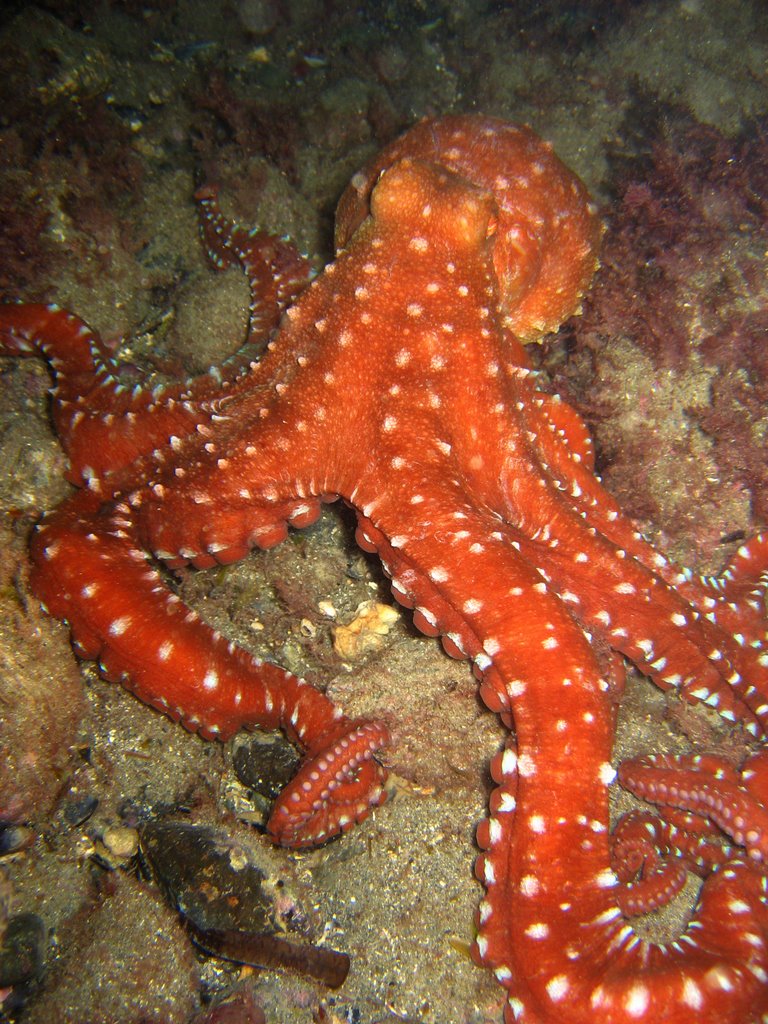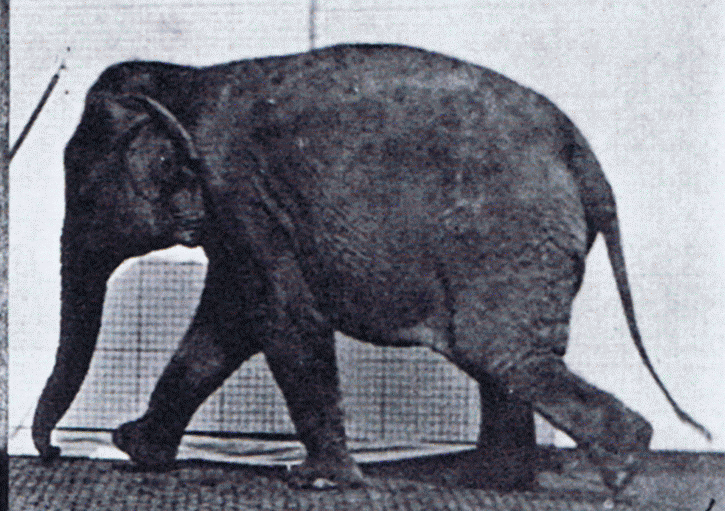|
Progression Of Animals
''Progression of Animals'' (or ''On the Gait of Animals''; ; ) is one of Aristotle's major texts on biology. It gives details of gait and movement in various kinds of animals, as well as speculating over the structural homologies among living things.Hall, Brian, Fins into Limbs: Evolution, Development, and Transformation, University of Chicago Press (2007), p. 1 Aristotle sets out to "discuss the parts which are useful to animals for their movement from place to place, and consider why each part is of the nature which it is, and why they possess them, and further the differences in the various parts of one and the same animal and in those of animals of different species compared with one another" (704a1-4). ''Progression of Animals'' illustrates Aristotle's teleological approach to animal biology. Texts and translations * * Greek text and English translation by E.S. Forster (Loeb Classical Library The Loeb Classical Library (LCL; named after James Loeb; , ) is a monogra ... [...More Info...] [...Related Items...] OR: [Wikipedia] [Google] [Baidu] |
Aristotle
Aristotle (; 384–322 BC) was an Ancient Greek philosophy, Ancient Greek philosopher and polymath. His writings cover a broad range of subjects spanning the natural sciences, philosophy, linguistics, economics, politics, psychology, and the arts. As the founder of the Peripatetic school of philosophy in the Lyceum (classical), Lyceum in Athens, he began the wider Aristotelianism, Aristotelian tradition that followed, which set the groundwork for the development of modern science. Little is known about Aristotle's life. He was born in the city of Stagira (ancient city), Stagira in northern Greece during the Classical Greece, Classical period. His father, Nicomachus (father of Aristotle), Nicomachus, died when Aristotle was a child, and he was brought up by a guardian. At around eighteen years old, he joined Plato's Platonic Academy, Academy in Athens and remained there until the age of thirty seven (). Shortly after Plato died, Aristotle left Athens and, at the request ... [...More Info...] [...Related Items...] OR: [Wikipedia] [Google] [Baidu] |
Aristotle's Biology
Aristotle's biology is the theory of biology, grounded in systematic observation and collection of data, mainly zoology, zoological, embodied in Aristotle's books on the science. Many of his observations were made during his stay on the island of Lesbos, including especially his descriptions of the marine biology of the Pyrrha lagoon, now the Kalloni#Bay and lagoon, Gulf of Kalloni. His theory is based on Hylomorphism, his concept of form, which derives from but is markedly unlike Plato's theory of Forms. The theory describes five major biological processes, namely metabolism, temperature regulation, information processing, embryogenesis, and inheritance (biology), inheritance. Each was defined in some detail, in some cases sufficient to enable modern biologists to create mathematical models of the mechanism (biology), mechanisms described. Aristotle's method, too, resembled the style of science used by modern biologists when exploring a new area, with systematic data collection ... [...More Info...] [...Related Items...] OR: [Wikipedia] [Google] [Baidu] |
Gait
Gait is the pattern of Motion (physics), movement of the limb (anatomy), limbs of animals, including Gait (human), humans, during Animal locomotion, locomotion over a solid substrate. Most animals use a variety of gaits, selecting gait based on speed, terrain, the need to wikt:maneuver, maneuver, and energetic efficiency. Different animal species may use different gaits due to differences in anatomy that prevent use of certain gaits, or simply due to evolved innate preferences as a result of habitat differences. While various gaits are given specific names, the complexity of biological systems and interacting with the environment make these distinctions "fuzzy" at best. Gaits are typically classified according to footfall patterns, but recent studies often prefer definitions based on mechanics. The term typically does not refer to limb-based propulsion through fluid mediums such as water or air, but rather to propulsion across a solid substrate by generating reactive forces against ... [...More Info...] [...Related Items...] OR: [Wikipedia] [Google] [Baidu] |
Loeb Classical Library
The Loeb Classical Library (LCL; named after James Loeb; , ) is a monographic series of books originally published by Heinemann and since 1934 by Harvard University Press. It has bilingual editions of ancient Greek and Latin literature, with the original Greek or Latin text on the left-hand page and a fairly literal translation on the facing page. History Under the inspiration drawn from the book series specializing in publishing classical texts exclusively in the original languages, such as the Bibliotheca Teubneriana, established in 1849 or the Oxford Classical Texts book series, founded in 1894, the Loeb Classical Library was conceived and initially funded by the Jewish-German-American banker and philanthropist James Loeb (1867–1933). The first volumes were edited by Thomas Ethelbert Page, W. H. D. Rouse, and Edward Capps, and published by William Heinemann, Ltd. (London) in 1912, already in their distinctive green (for Greek text) and red (for Latin) hardco ... [...More Info...] [...Related Items...] OR: [Wikipedia] [Google] [Baidu] |
Jules Barthélemy-Saint-Hilaire
Jules Barthélemy-Saint-Hilaire (19 August 1805 – 24 November 1895) was a French philosopher, journalist, statesman, and possible illegitimate son of Napoleon I of France. Biography Jules was born in Paris. Marie Belloc Lowndes, in the second volume of her autobiography '' Where Love and Friendship Dwelt'' (1943), made claims regarding his paternity. He was reportedly ashamed of and did not talk about it. Lowndes did not say who his mother was. In his early years he worked for the Ministry of Finance (1825–1828), and was an active journalist. From 1826 to 1830 he opposed the policies of Charles X of France in ''Le Globe''. At the revolution of 1830 he signed the protestation of the journalists on 28 July 1830. After 1830, he contributed to different newspapers, ''Le Constitutionnel'', ''Le National'' and '' Le Courrier français'' until 1833, when he gave up politics in order to devote himself to the history of ancient philosophy, undertaking a translation of Aristot ... [...More Info...] [...Related Items...] OR: [Wikipedia] [Google] [Baidu] |
Works By Aristotle
The works of Aristotle, sometimes referred to by modern scholars with the Latin phrase ''Corpus Aristotelicum'', is the collection of Aristotle's works that have survived from antiquity. According to a distinction that originates with Aristotle himself, his writings are divisible into two groups: the "exoteric" and the "esoteric". Most scholars have understood this as a distinction between works Aristotle intended for the public (exoteric), and the more technical works intended for use within the Lyceum (esoteric). Modern scholars commonly assume these latter to be Aristotle's own (unpolished) lecture notes (or in some cases possible notes by his students). However, one classic scholar offers an alternative interpretation. The 5th century neoplatonist Ammonius Hermiae writes that Aristotle's writing style is deliberately obscurantist so that "good people may for that reason stretch their mind even more, whereas empty minds that are lost through carelessness will be put to flight ... [...More Info...] [...Related Items...] OR: [Wikipedia] [Google] [Baidu] |



